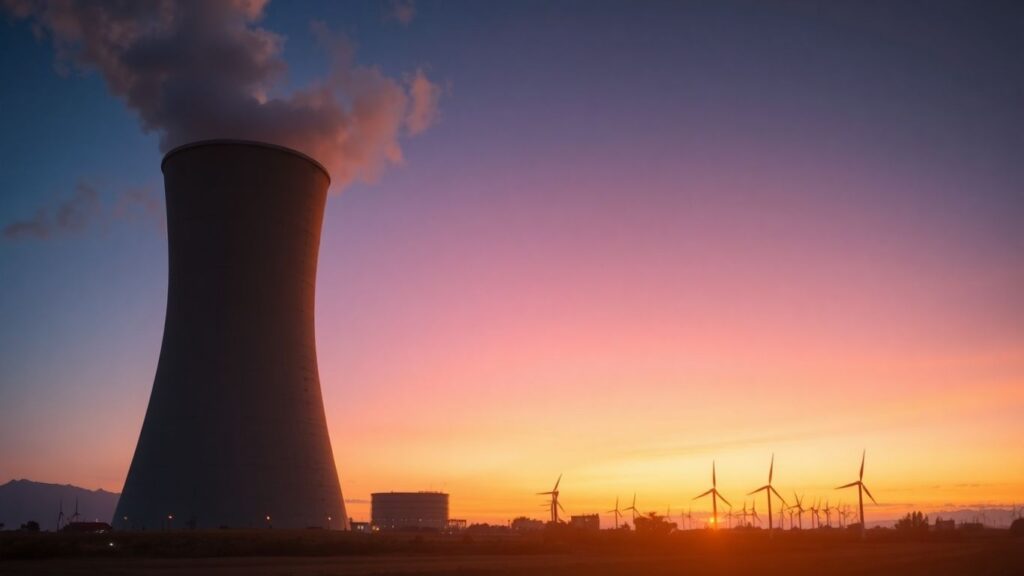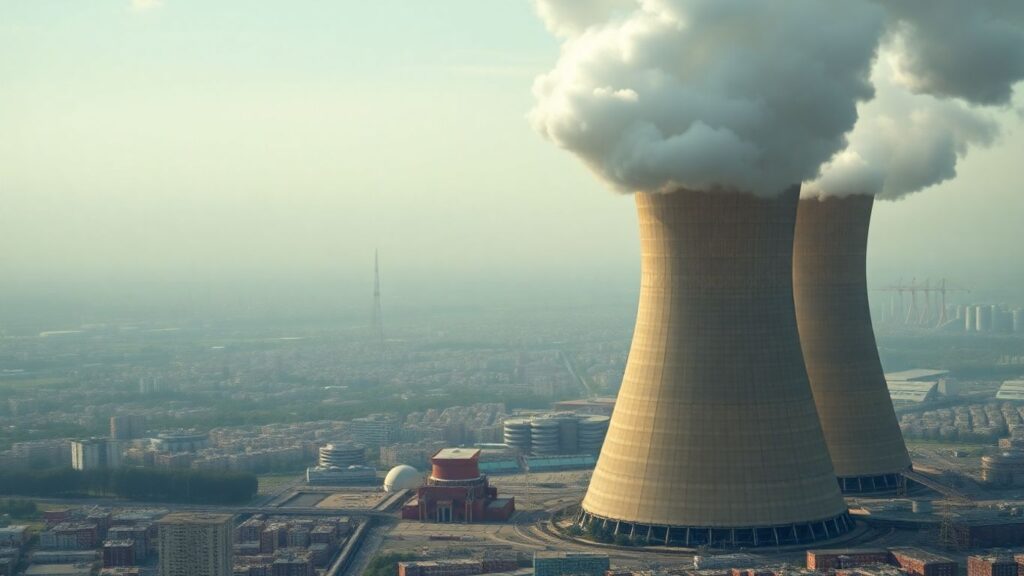The United States has granted an export license to Clean Core Thorium Energy, a Chicago-based company, allowing it to ship thorium-based nuclear fuel to India. This marks a significant step in US-India civil nuclear cooperation and the development of thorium as a viable alternative to uranium for nuclear reactors. The move could bolster India’s long-standing ambition to leverage its abundant thorium reserves for energy production.
Key Takeaways
- US Export License Granted: Clean Core Thorium Energy has received a crucial export license from the US to supply thorium fuel to India.
- Thorium’s Potential: Thorium offers advantages over uranium, including greater abundance, reduced long-lived radioactive waste, and a lower risk of weapons material diversion.
- India’s Thorium Strategy: India, with limited uranium but ample thorium, aims to reduce fuel import dependence.
- Clean Core’s Innovation: The company’s fuel blends thorium with HALEU (high-assay low-enriched uranium), making it compatible with India’s existing pressurized heavy-water reactors (PHWRs).
- Regulatory Shifts: India is reforming its nuclear liability laws, previously a barrier to foreign nuclear technology exports.
A New Era for US-India Nuclear Cooperation
The export license, effective immediately, allows Clean Core to supply its thorium-uranium blended fuel to Indian reactors. This development is a milestone, as it’s only the second time in nearly two decades the US has issued such a license for nuclear technology to India. "This license marks a turning point, not just for Clean Core but for the US-India civil nuclear partnership," stated Mehul Shah, Clean Core’s CEO. "It places thorium at the center of the global energy transformation."
Thorium: A Promising Alternative
Thorium is more abundant than uranium and produces less long-lived radioactive waste, with reduced potential for weapons material diversion. However, it requires a small amount of uranium to initiate fission and is less suited for traditional light-water reactors. Clean Core’s innovative fuel blend, however, is designed to work in India’s pressurized heavy-water reactors (PHWRs), which form the backbone of its nuclear fleet. This approach is seen as the "path of least resistance" for popularizing thorium fuel.
India’s Energy Landscape and Regulatory Reforms
India has a long-term strategy to utilize its vast thorium reserves, a plan initiated in the early 2000s with the US. However, India’s Civil Liability for Nuclear Damage Act of 2010, which placed liability on suppliers for accidents, had effectively halted most US nuclear technology exports. Recent joint statements from US and Indian leadership indicate a commitment to fully realizing the US-India 123 Civil Nuclear Agreement, including plans for US-designed reactors in India. Furthermore, India’s government has signaled intentions to reform the nuclear liability law, easing restrictions for foreign companies.
Kerala’s Interest in Thorium Power
Separately, the power utility in Kerala has sought central government permission to establish a thorium-based nuclear power plant, citing the state’s significant thorium deposits. The proposal suggests utilizing land at an NTPC unit in Kayamkulam for smaller thorium nuclear plants, inspired by a similar facility in Tamil Nadu. Kerala’s energy minister also emphasized the potential of the state’s thorium reserves during discussions with the Union Power Minister, highlighting the need to utilize domestic resources to meet energy demands.
Sources
- This American company could help India’s thorium dream, MIT Technology Review.
- The Download: Humans in space, and India’s thorium ambitions, MIT Technology Review.
- Kerala: Kerala utility seeks nod for thorium-based nuclear plant | India News, The Times of India.
- [High-level meeting between Centre, Kerala government suggests possibility of nuclear power station in Kerala
- Kerala News](https://www.indiatoday.in/india/kerala/story/kerala-eyes-thorium-potential-nuclear-power-during-centre-state-energy-talks-2654609-2024-12-24), India Today.












